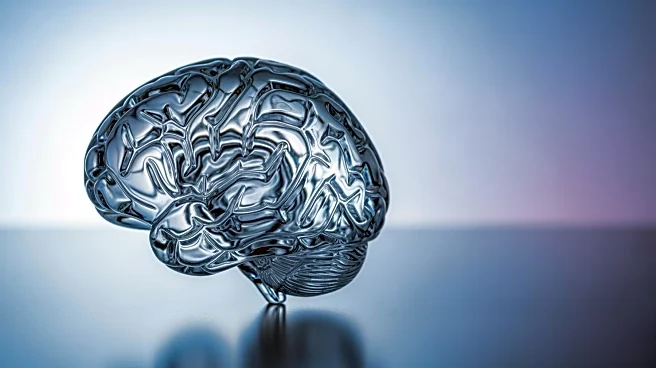What's Happening?
The Israeli government has confirmed the return of Lt. Hadar Goldin, a deceased hostage held in Gaza since 2014. The National Institute of Forensic Medicine identified Goldin's remains after they were returned to Israel on Sunday. Goldin was captured
during a ceasefire in the 2014 Israel-Gaza conflict, and his return marks the end of an 11-year ordeal for his family and the nation. An IDF honor guard stood over Goldin's coffin upon its arrival, signifying the solemnity and significance of the event. The return of Goldin's remains is part of ongoing efforts to recover hostages and deceased individuals held by Hamas in Gaza.
Why It's Important?
The return of Lt. Hadar Goldin's remains is a significant development in the long-standing conflict between Israel and Hamas. It highlights the ongoing humanitarian and diplomatic efforts to resolve hostage situations and bring closure to affected families. This event may influence future negotiations and strategies in the Israel-Hamas conflict, potentially impacting regional stability and international relations. The return also underscores the importance of forensic and diplomatic efforts in resolving such complex situations, providing a measure of closure to the families involved and the broader Israeli society.
What's Next?
The return of Goldin's remains may lead to renewed diplomatic discussions between Israel and Hamas regarding other hostages and deceased individuals. It could also prompt international involvement or mediation to facilitate further exchanges or negotiations. The Israeli government and military may continue to prioritize the recovery of hostages and deceased individuals, potentially influencing military and diplomatic strategies in the region. The event may also affect public sentiment and policy decisions within Israel, as the nation grapples with the humanitarian aspects of the conflict.
Beyond the Headlines
The return of Hadar Goldin's remains raises ethical and cultural considerations regarding the treatment of hostages and deceased individuals in conflict zones. It highlights the role of forensic science in providing closure and justice in such situations. The event may also influence public discourse on the humanitarian aspects of the Israel-Hamas conflict, potentially affecting international perceptions and policies. The cultural significance of honoring deceased soldiers and hostages in Israel underscores the deep emotional and societal impact of such events.















